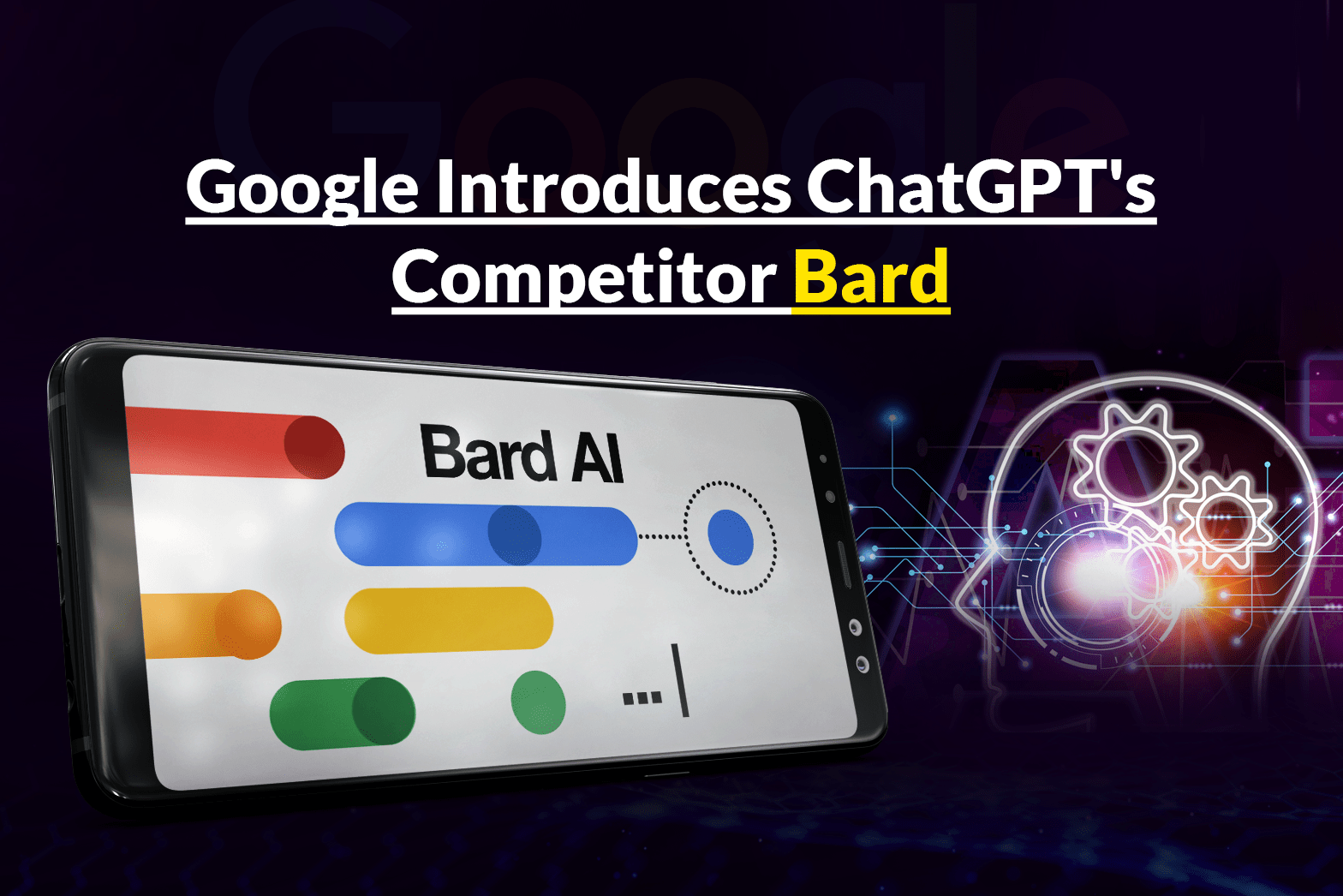Google Introduces ChatGPT’s Competitor Bard

Bard is Google’s answer to ChatGPT. Google’s new AI is the product of intense pressure on the search giant to produce an AI that is equivalent to OpenAI’s popular ChatGPT.
The tech world has been buzzing about the impressive capabilities and performance of AI-powered search engines like Microsoft Bing and Google Bard. Both search engines are revolutionizing the way people search for information online. Google has now launched its own experimental AI, Bard, powered by the search engine stalwart’s LaMDA technology. The move comes as the war to dominate the new technological frontier intensifies, with Microsoft announcing its $10bn investment into ChatGPT’s parent company OpenAI. Tech giants are already rushing to beat one another to the top of the AI mountain, with no signs of slowing.
What is LaMDA?
Two years ago, Google unveiled their Language Model for Dialogue Applications (LaMDA). LaMDA is built on Transformer, a neural network architecture that Google Research invented in 2017, and incorporates multimodal user intent, reinforcement learning, and suggestions. It is a statistical method that predicts future words based on previous ones, allowing the chatbot to stimulate conversation in a flowing manner.
LaMDA uses less computing power, allows for scalability, and provides a more effective feedback system. Google trained LaMDA on actual dialogue so that it could interact with people in a natural way rather than just fetching numerous results for queries in the way a search engine works. The real breakthrough, according to the company, is its ability to hold a free-flowing conversation compared with other chatbots that provide predetermined responses.
What is Google Bard?
Google Bard is an artificial intelligence-powered conversational chatbot that uses Google’s LaMDA technology. This could compete with Chat GPT, a popular chatbot developed by OpenAI and supported by Microsoft. The service will use artificial intelligence (AI) technology to generate responses to user-inputted queries and commands that will imitate human speech.
Google Bard was initially only available to a small group of beta testers. However, plans are in work to make it more accessible in the near future.
What influenced Google’s AI announcement?
Google has launched its own AI chatbot service to compete with OpenAI’s ChatGPT, which has over 100 million users. This is exciting news for the AI community, as more people rely on these chatbots to assist them with tasks and answer their questions. Bard’s ability to explain complex topics in a way that even a kid can follow demonstrates the power of Google’s technology. It’s amazing to see how quickly the AI landscape is changing and how these two chatbots are already influencing how we access and consume information. Due to the popularity of chatbots & its immense growth, Google is releasing a competitor.
The competition between these two tech industry giants will drive both companies to innovate and improve their respective chatbots, benefiting users in the end. Google’s top revenue strategy is based on being the number one search engine, so any competitor like ChatGPT is critical. The impact of ChatGPT cannot be neglected, with one million users in five days and 100 million in two months. Google will try to replicate this success with its AI model or risk losing its search influence.
What’s the difference between Bard and ChatGPT?
There are some notable differences between ChatGPT and Bard. Lamda, Google’s language model, gathers information from the Internet to answer questions about recent events. ChatGPT, on the other hand, can only access data till 2021. This could help Bard when answering questions about recent events.
ChatGPT seems to have the advantage in terms of availability. This is free to use, however there is now a premium version of the service, ChatGPT Plus. Bard, on the other hand, is still limited for a restricted set of testers. That is expected to change soon.
Both tools have different backgrounds. Google, a billion-dollar tech company, is behind Bard, while OpenAI, a startup AI research business, is behind ChatGPT. But, OpenAI can now count on Microsoft’s support. The software company has put ten billion US dollars towards the operation.
It will be interesting to see what Google has planned for Bard. Is it going to be more effective than ChatGPT?
The arrival of Google’s AI chatbot marks a significant shift in the technology that tech brands will invest in over the next few years. Both Microsoft Bing and Google Bard are impressive AI-powered search engines that are making significant progress in their respective fields, with Bing being more user-friendly and Bard backed by Google’s vast data. The outcome of this competition will be decided by what users want and expect, as well as how both search engines develop and keep improving.
Recent Posts
GEO Vs AEO Vs SEO Comparison Guide – Revolution of AI Marketers in 2025
We’re entering a new era where AI and human curiosity come together and if your business isn’t ready, you could fall behi...
WordPress Plugin All-in-One WP Migration Security Bypass (2.0.4)
The All-in-One WP Migration plugin for WordPress has a security bypass vulnerability that could let attackers perform restric...
FAQ: All About the New Google “Hummingbird” Algorithm
Google has a new way of sorting information when searching for something. This system is called “Hummingbird.” Here's wha...
Meta new update to increase lead quality
Are you running Facebook Lead Ads but unhappy with the quality of leads you're getting? A key setting and a recent update cou...
